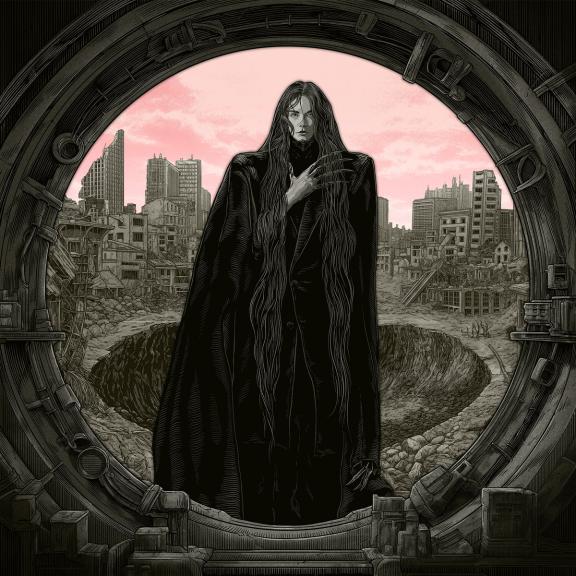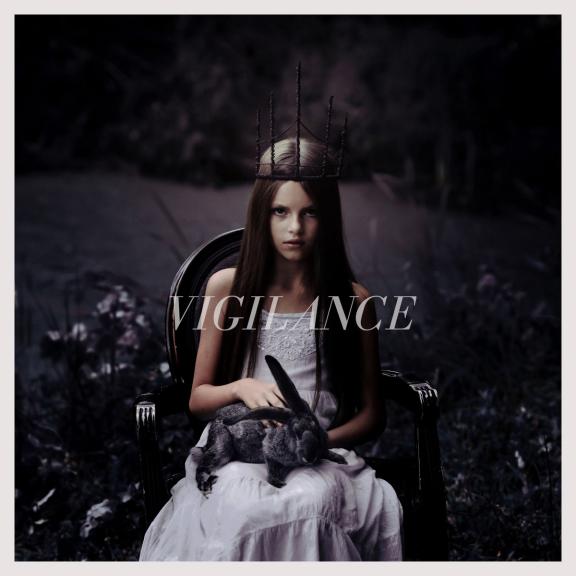Singer Milena Eva admits that the confinements of 2020 brought back traumas that had been buried for years. The result was This Shame Should Be Mine, a heart-rending album with themes as painful as they are intimate, accompanied by a radical stylistic evolution of the band towards more minimalism and electronica. This transformation recently took on a new dimension when, last summer, Ggggolddd appeared on stage in a reduced formation (there are now just four of them) and presented us with updated versions of two old tracks. The PTSD EP is as much a follow-up to last year's album as it is a hint of the band's future.
What's immediately striking about this evolution is how, beyond the music, it is consistent with the subject matter. Gggolddd is more than ever centered on the duo of Thomas Sciarone and Milena Eva, and this recent stripping down of musical resources enhances a subject tackled head-on: the listener can no longer run away from this rape testimony, nor can he take shelter behind the three guitars that once expressed themselves. PTSD is immediately astonishing in its absolute elegance and almost austere sobriety. It's all the more moving for that, with It's Over, a hypnotic loop and a simple but haunting melody accompany a vocal whose intonations oscillate between lament and merciless narration. Rediscovering He Is Not is a shock. The guitars are now reduced to distant laments, the slowed-down rhythm imposing a mournful tone oozing despair, anguish and disappointment. The impact of Gggolddd is no longer in the technical demonstration or the piling up of layers, but on the contrary in raw emotion devoid of irony and simplicity.
This spectral, icy sadness is as sublime as it is deeply moving. We're reminded of Portishead's Third album and its tracks like We Carry On and Machine Gun, which flirt with industrial coldness, but whose darker sides, anguish and despair, Ggggolddd would have accentuated (we freely admit that since Bestial Mouths' remix of You Too Must Die, we've been dreaming of seeing the Dutch fully assume a synthetic direction). Silence and the new version of Old Habits both support this direction, with the machines imposing their alienating, intractable repetitiveness, adding a sense of menace and oppression to the post-traumatic suffering. The artwork depicts a world in ruins, a metaphor that the band pushes all the way to an eventual reconstruction addressed at the end of the EP with I Let My Hair Grow and its nuanced notes of hope that conclude PTSD on a bittersweet note: healing will come through a form of abandonment, of letting go.
By combining the harsh frontality of the text with a minimalist musical orientation, combining gentleness with horror, Ggggolddd has not only opened up a new artistic avenue, with each track impressively masterful. By bearing witness without artifice, the band has also created a new personal connection with the listener. We're both transfixed and transported by the long road through the ruins that PTSD pursues, while at the same time catching a glimpse of light at the end of it, a rebirth that's much more than artistic. In the meantime, at just five tracks, PTSD is a shattering and fascinating masterpiece, whose courage extends far beyond the musical sphere.





